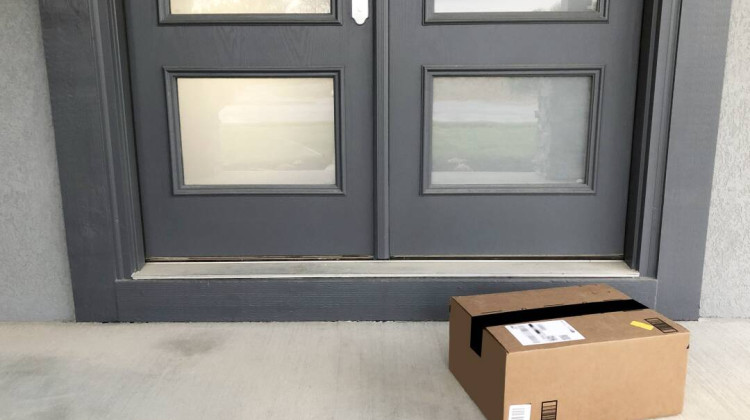
Purdue University researchers are helping to develop physIQ software that could indicate that a person should get tested for COVID-19 by detecting specific changes in heart and breathing rates while wearing a smartwatch.
Courtesy of John Underwood/Purdue UniversityResearchers at Purdue University hope to use smartwatch data to help detect early signs of COVID-19. The study could help perfect ways of using already available fitness-tracking data.
The study is based on what researchers already know can signal a viral infection changes in heart and breathing rates. Craig Goergen facilitates the study and is an associate professor of Biomedical Engineering. He said a watch will never tell a wearer they have COVID-19, but it could offer information that could lead to preventative action, which is especially huge if a person is asymptomatic.
“An increased heart rate or respiration rate means something different if it increased while you were resting as opposed to running, but most smartwatches have difficulty distinguishing that. So it is really recovery and resting periods that we are focused on with this approach,” Goergen said.
Though smartwatches and similar devices, like fitness trackers can be used to help detect abnormalities in a person’s heart-rate or respiratory rate, Goergen stresses this study does not aim to replace diagnostic testing.
“It could say you’ve got something that might be a viral like, influenza-like infection,” he said, “And we need you to, we suggest you go in and get tested to see if we can prevent outbreaks, prevent exposure for larger groups of people.”
The study will consist of about 100 participants, all Purdue staff, students and faculty. Participants will be mailed a smartwatch and sensor kit, pre-loaded with an app from Purdue’s partner for the study, Chicago-based phyIQ, to continuously collect data.
A watch-compatible smartphone will also be mailed to participants, and will collect data for five days of continuous monitoring while Goergen’s lab analyzes data from the app remotely using physIQ’s cloud-based accelerateIQ platform. This data includes a person’s heart and breathing rates. The analyzed data will then help create the algorithms that will set the standard for each person in the study.
However, the question still remains whether a wrist watch is the most reliable way to record a variable such as respiration rate, especially when factors such as the tightness of the watch band can have an effect on the data being collected.
Purdue researchers plan to eventually expand the study to include individuals at high risk of contracting COVID-19.
Contact reporter Bárbara at banguiano@lakeshorepublicmedia or follow her on Twitter at @radiospice219.
 DONATE
DONATE





 View More Articles
View More Articles

 Support WFYI. We can't do it without you.
Support WFYI. We can't do it without you.